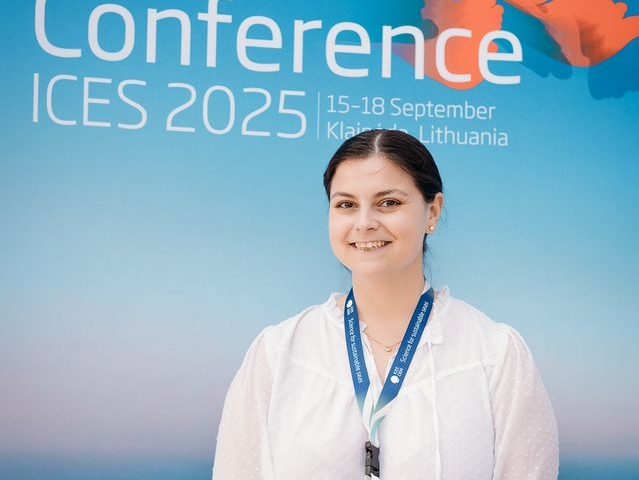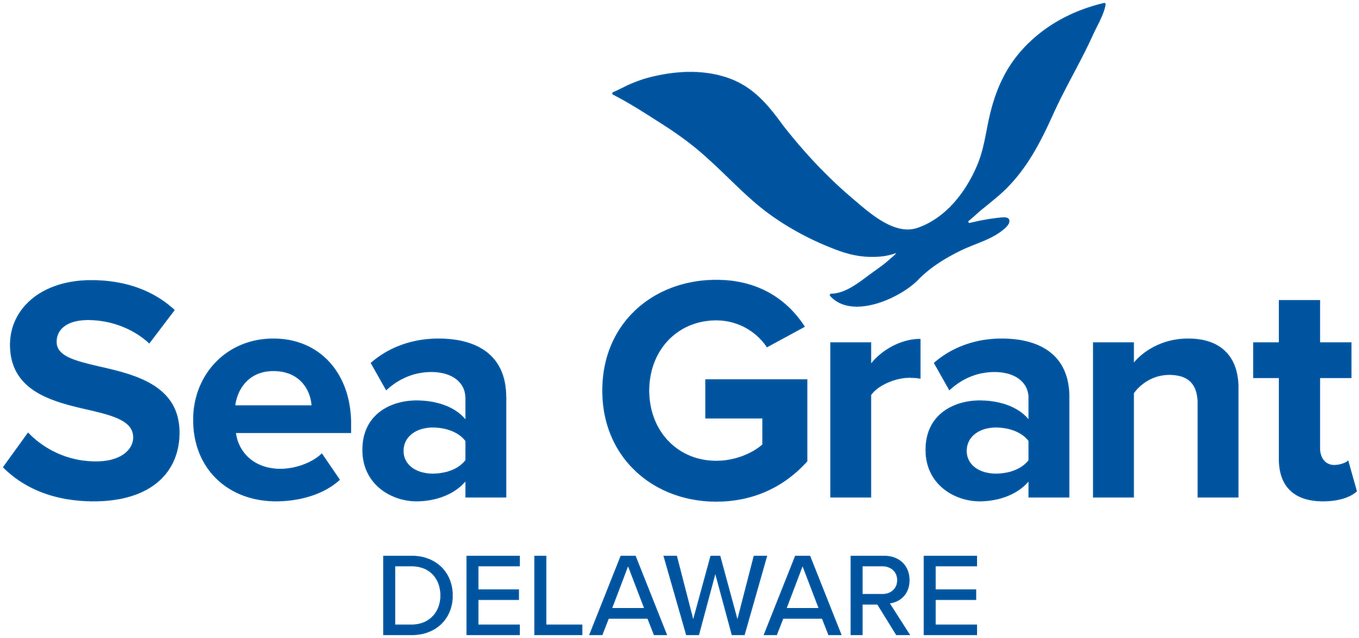
Category: News

Q&A with Knauss Fellow Rachel Roday
October 27, 2025 Interview by Adam Thomas
Rachel Roday received her bachelor’s degree from the University of Delaware in marine science and biological sciences in 2021 and her master’s degree in marine biosciences from UD in 2025. She was selected by Delaware Sea Grant to be a 2025 John A. Knauss Fellow, a fellowship run through the National Sea Grant office that offers direct experience working on the latest issues in ocean, coastal and Great Lakes management and research.
Below is an interview with Roday on her experience.
What have you been working on during your Knauss Fellowship?
I'm working with the National Oceanic and Atmospheric Administration (NOAA) in their Office of Science and Technology which oversees the six regional fishery science centers across the country.
What does your role as a Knauss Fellow include?
I work with our scientists at the NOAA fishery science centers, and there’s a lot of fisheries related work. Within that, I work on international fishery science.
I help connect our domestic NOAA scientists to their international colleagues and when we have foreign vessels that come into the waters of the United States, I’m helping make sure that it’s all cleared by our NOAA Fisheries scientists.
Could you talk about the process of clearing a ship? What all does that entail?
It’s a big process—and ships from the United States do the same when we enter foreign waters. Before a foreign research vessel enters the United States’ exclusive economic zone, they have to submit an application through the State Department. Then, the State Department sends their application for review to every major government office—which includes the U.S. Fish and Wildlife Service, the Environmental Protection Agency, and the Coast Guard, among others.
We'll receive it at NOAA headquarters, and it gets disseminated out to the six NOAA line offices. I help lead the review coordination for NOAA Fisheries within NOAA.
Then I send it to our appropriate contacts in whatever region that research vessel is entering. For instance, if it's in the Pacific Northwest or if it's near the Hawaiian Islands, I'll make sure that our scientists at those centers and those regional offices get the application. That ensures the applications gets a thorough review and the research being done by individual vessels is purely in the pursuit of marine science rather than something like an extractive enterprise. So, they're not fishing or mining or harming marine mammals, we want to make sure they're conducting science and experiments.
How has your personal experience helped shape your Knauss Fellowship?
Before this fellowship, I was able to do research in two different countries in Canada and Norway, so I was interested in something that would give me exposure to the international community to have a better idea of how everything works at a government level. I come from a fisheries background and hope to pursue that after, so this was a perfect match working on international fisheries science
If we [the U.S] are sending a boat into U.K. waters or Canadian waters, which happens all the time because we have a lot of joint fisheries surveys with Canada, we apply through their state department and do the reverse of the process I spoke about earlier. I think it’s been beneficial to know how this all works.
What other aspects of government or policy have you been working on during your time as a Knauss Fellow?
Right now, the main thing I'm focusing on is making sure that we have the correct political clearances to send NOAA scientists to the International Council for the Exploration of the Sea (ICES) and the North Pacific Marine Science Organization (PICES) annual conferences which, the last one was in Lithuania and this fall, it’s in Japan. Making sure we get all the correct signatures and doing the paperwork for that takes up at least half of my day job.
ICES and PICES are both great fora for discussing with scientists, leading to collaborations between scientists,joining working groups, and doing anything you would do in another scientific society, such asthe American Fisheries Society. I was able to present some of my master’s research in Lithuania and met so many wonderful people in the ICES community.
What has been the most beneficial aspect of the Knauss Fellowship?
I’ve had the chance to interact with a lot of folks who, I've looked up to their work. I may have cited them in my thesis or in publications, but I didn't know them as people. Now, I get to work with them, and I might not be helping them with their science but I'm helping them get to the place where they need to go, which enables them to coordinate with their collaborators. It’s cool to be a part of the puzzle. Also, maybe in the future, collaboration with them will be a little bit easier because they know my name.
It’s great to have that professional rapport and if we do collaborate in the future, they won’t be like "Who is this random person emailing me?"
What has it been like working in Washington D.C. and getting exposed to policy work?
I think the Knauss Fellowship is such a great experience to find out if the policy world is for you. I feel like a lot of scientists or folks coming out of academia or grad school, they want to make an impact, and they think maybe policy is a way to do that. This fellowship is a great experience to test the waters without fully committing. Without this experience, I wouldn't know either way. I’d have to be a contractor or a full federal employee and that is a quite a commitment. You have to uproot your entire life whereas this is just for a year, and you can try it out and I've learned so much and made so many friends.




